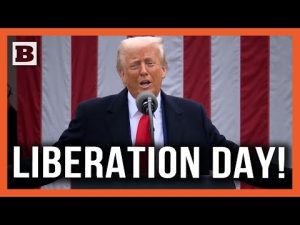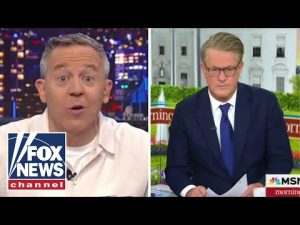**Brazil’s Political Turmoil: A Cautionary Tale for America**
The world has been watching Brazil, a country that has recently found itself in the throes of a political crisis. With the stock market in the United States soaring to record highs, many are wondering if a similar downturn could occur here. Savvy investors know that diversification is crucial for financial security, and companies like Noble Gold Investments are helping Americans add gold to their portfolios. As folks ponder their financial futures, the events in Brazil serve as a stark reminder of the fragility of political systems and the importance of vigilance in governance.
In Brazil, the political landscape has taken a dramatic turn. After ex-President Jair Bolsonaro lost a close election to left-wing candidate Luiz Inácio Lula da Silva in 2022, tensions have run high. Bolsonaro won the majority of the country, except in the poorest and most crime-ridden areas. Supporters rallied in a manner reminiscent of the U.S. Capitol incident on January 6. The fallout has included an aggressive crackdown by the judiciary, with judges wielding influence that many observers believe surpasses even that in the United States.
Bolsonaro is now facing trial, with the expectation that he must prove his innocence. This marks a concerning shift in judicial practice, where the presumption of innocence appears to be overshadowed by accusations and political maneuvering. Such developments raise eyebrows, particularly as Brazil is often considered an ally of the United States. If a country with which we have diplomatic ties experiences such judicial overreach, it begs the question: why is there no response from the U.S. State Department? Shouldn’t there be consequences for this kind of behavior?
Senators and former Presidents have called on the U.S. government to take action, suggesting that tariffs or sanctions might be appropriate responses. Brazil’s situation is viewed as a clear warning sign of what judicial despotism can lead to. In the eyes of many, the rule of law is being compromised, with judges positioning themselves as guardians of democracy while undermining the will of the people. This isn’t just theoretical; the implications are profound for citizens of both Brazil and the United States.
Observers have noted that the Brazilian crisis is not an isolated incident. Political maneuvering similar to what’s happening in Brazil can be seen in American courts, where judicial decisions are often perceived as politically motivated. The idea that judges can impose their will over elected officials raises alarms about the health of democracy itself. The fate of Bolsonaro, a duly elected leader, serves as a cautionary tale: if the rule of law can be bent to suit political agendas, could similar actions occur in the United States?
As Americans head to the polls for midterm elections, it’s crucial to consider these international developments. The fragility of democratic institutions is evident, and history has shown that neglect can lead to dire consequences. Political engagement, voter registration, and awareness are key components in safeguarding democracy. Just as Brazilians navigate their tumultuous political landscape, Americans must remain vigilant to ensure that their voices are heard and that their rights are protected.
In conclusion, Brazil’s current struggle is more than just a Latin American issue—it serves as a sobering reminder of the need for vigilance in the face of political challenges. While investors are diversifying their portfolios to guard against economic downturns, it may also be time for citizens to diversify their understanding of democracy. The health of a nation can hinge on the actions of its judges, officials, and voters alike. As events unfold in Brazil, they offer a poignant lesson: the strength of a democracy lies in its checks and balances, which must be upheld by a watchful and engaged populace.







